
A Preliminary Survey of PRC United Front Activities in South Korea
Publication: China Brief Volume: 23 Issue: 7
By:
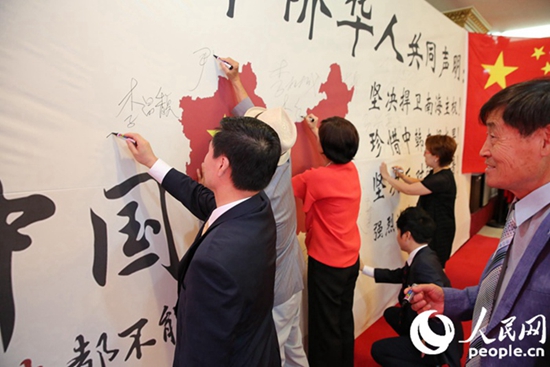
Introduction
The People’s Republic of China (PRC) exercises influence over South Korea in multiple ways. Chinese influence operations against Seoul have been characterized as not subtle and even blatant compared to the more covert and subversive methods employed in other countries (China Brief, December 19, 2014). Indeed, the more overt and aggressive ways in which Beijing exercises influence were on full display when the PRC responded to Seoul’s decision to deploy the Terminal High Altitude Area Defense (THAAD) system in 2016 with boycotts, military exercises and diplomatic pressure (China Brief, March 31, 2017). Less well known, however, is how China employs other, more subtle means to influence South Korean politics and society.
A general presumption exists that influence must be exerted overtly or in forms such as diplomatic protests or through sanctions, yet Beijing’s influence activities also take on a less pronounced and more obscured nature, which is commonly associated with its United Front activities. This article will provide a preliminary assessment of the local Chinese Council for the Promotion of Peaceful National Reunification of China (CCPPNR, 韩华中国和平统一促进联合总会) and the web of other United Front organizations that operate in South Korea. [1] This article does not seek to offer an exhaustive examination of these organizations, but to provide a preview of the key United Front apparatuses and their activities in South Korea.
Mapping CCP United Front Organizations in South Korea
Overseas Chinese diaspora communities are both a primary target and a key vehicle for PRC influence operations. [2] A study published by the Congressionally-mandated U.S.-China Economic and Security Review Commission (USCC) on “China’s Overseas United Front Work Background and Implications for the United States” noted that overseas Chinese work now conducted by the Chinese Communist Party (CCP) “seeks to co-opt ethnic Chinese individuals and communities living outside China, while a number of other key affiliated organizations guided by China’s broader United Front strategy conduct influence operations targeting foreign actors and states” (USCC, August 24, 2018).
A preliminary survey reveals that at least several dozen United Front organizations and affiliate groups now operate in South Korea. A close examination of all of these organizations is beyond the scope of this assessment. This article will instead focus on a key pair of organizations and draw out some of their overlapping leaderships, then provide generalized observations about their activities. The key organizations in the United Front system operating in South Korea are the CCPPNR and the Association of Overseas Chinese in Korea (中国在韩侨民协会总会). The latter organization was ostensibly established to compete for membership with established Chinese compatriot associations comprising older immigrants who identified more with the Republic of China (ROC) than the PRC (Weekly Chosun, January 6). These two organizations are tied to at least several dozen other organizations, the most notable of which are the Korea Chinese Huaqiao Alliance Council (韩国华侨华人联合总会) and the All-Korean Nationals of Chinese Descent Council (韩国全国韩籍华人总联合会). Many of these organizations share overlapping leadership and membership cohorts that underscore a distinct feature of the United Front organizations in South Korea in which there appears to be a high degree of centralization.
Chinese Council for the Promotion of Peaceful National Reunification in Korea
The overseas diasporas were instrumental for the PRC in its diplomatic outreach after the state’s establishment in 1949. South Korea is a case in point. Central to the web of United Front organizations in the Republic of Korea (ROK) is the late Han Shenghao (韓晟昊/ also known as 韓早先), who was the founder of the national chapter of the Chinese Council for the Promotion of Peaceful National Reunification (CCPPNR)—an organization that is directly subordinate to the CCP’s United Front Work Department (中共中央统一战线工作部)—and a host of other United Front and diaspora organizations.[3]
A renowned elder in the Korean-Chinese community and famous oriental medicine practitioner, Han has played a prominent role in the diaspora in political and even diplomatic affairs. This was demonstrated when the Korean government conferred a national award on him for his contributions to advancing PRC-ROK relations. Han was referred to as a secret back channel who helped to pave the way for the 1992 normalization of relations between Beijing and Seoul (Center for Interdisciplinary Research on China (CIRC) at Kookmin University, February 24, 2022). He also played an essential role after normalization in helping to establish the infrastructure of the CCP’s United Front organizations in South Korea. Presently, at least six CCPPNR chapters operate in South Korea, including the national chapter, which was established on February 14, 2002—a decade after the normalization of ties and during a period of tense cross-Strait relations (CCPPNR, June 11, 2012). Following the creation of the national chapter, the Gunsan-si chapter (韩国群山中国和平统一促进会) was established in 2004 and headed by Xing Guangyi (邢广义) (CCPPNR). The Incheon chapter (韩国仁川华侨中国和平统一促进会) quickly followed and was created in 2005 and headed by Wang Chengjie (王晟杰). The Gwangju and Jeolla-do (韩国光州全罗南道中国和平统一促进会) chapter was also created the same year and led by Ma Yuchun (马玉春).(CCPPNR). The Seoul chapter (韩国首尔中国和平统一促进会) was created in 2006 and headed by Cao Mingquan (曹明权) (CCPPNR, October 22, 2008). The Jeju-si chapter (韩国济州华侨华人中国和平统一促进会) was established in 2013 with Li Zhangzuo (李长作) as its leader (CCPNR, November 29, 2013).
Association of Overseas Chinese in Korea
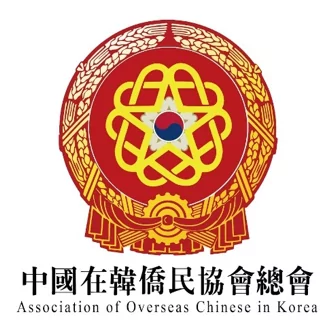
In 2002—the same year in which the CCPPNR in South Korea was established—Han also played an instrumental role in creating the Association of Overseas Chinese in Korea (hereafter “Association”) (YouTube, July 1, 2021). The reason for the formation of the Association should be understood in the context of the longstanding competition between the PRC and the ROC (Taiwan) for legitimacy in the eyes of Chinese diaspora communities around the world. Since its creation, the Association has become the largest diaspora association in South Korea, which, according to one account, has surpassed the membership numbers of the old Chinese associations that identified more with the ROC and were in fact directed by the Taiwan representative office. With the establishment of diplomatic relations between Korea and China in 1992 and China’s rapid development, the influx of PRC nationals to South Korea has steadily gone up, while inflows of Taiwanese nationals have stagnated (Weekly Chosun, January 6).
The critical difference between the CCPPNR and the Association of Overseas Chinese in Korea is that the former, which is directed by the UFWD, serves as an overt political purpose whereas the latter seeks to unite the diaspora community under the PRC’s leadership. However, these organizations operate in tandem, as demonstrated by how the two associations hold their leadership announcements in conjunction with one another. Moreover, the CCPPNR purportedly recruits from the Association of Overseas Chinese in Korea.
Who is Wang Haijun?
As central as Han Shengtao was to building United Front organizational infrastructure in South Korea, since 2016, the nucleus of these groups’ leadership has been transferred over to Wang Haijun (王海军). He was the vice chairman of the Association up until November 2016, when he was elected as the fifth General Chairman of the national association for the CCPPNR and third chairman of the Association of Overseas Chinese. In assuming the top roles in both United Front organizations, Wang took the helm from the aging Han, who died in 2018 at age 91. [4]
The Association is reportedly under the guidance and supervision of the PRC Embassy in Korea and interestingly has an office in Yantai, Shandong province (中国在韩侨民协会总会(烟台办事处) and is registered with South Korea’s Ministry of Culture, Sports, and Tourism (Zhongguo Qiaowang, February 14, 2017; DspDaily, December 5, 2016). While speculative at this point, it is at least plausible that the CCP may be utilizing or at least trying to use ethnic-Korean minorities and Korean-Chinese in China to engage in United Front work in South Korea. The aim of the CCP United Front groups is to absorb and integrate the entire Chinese community in Korea and essentially lead the overseas Chinese in Korea.
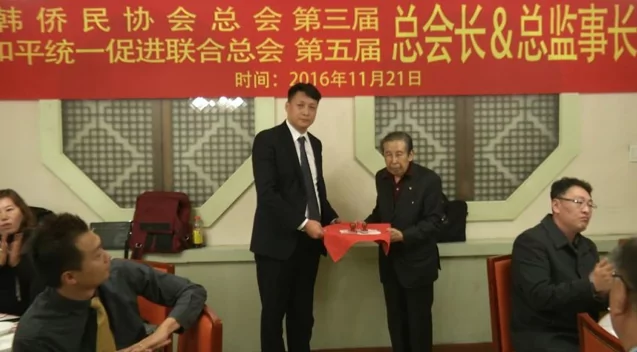
Even more so than Han Shengtao, his predecessor and mentor, Wang Haijun is a man of intrigue. Little is known about his past prior to his arrival in South Korea from Shandong province around 2003. Wang quickly joined the Council and Association and then spent more than a decade building up his network before formally taking over the top leadership roles of the major United Front organizations in South Korea (CCTV, August 5, 2017). It is unclear when and under what circumstances Wang met Han, or whether Wang knew Han before he arrived in South Korea in the early 2000s. While speculative, it is plausible that Wang’s succession in these roles was planned.
In August 2017, China’s state-run China Central Television (CCTV) ran an episode on Wang’s life in a program called “Chinese World” (华人世界) (Icknr, December 22, 2022). The episode said that Wang was then 39 and would have been born around 1978 (although he appears to be much older). He is said to have been born in Fushun (撫順), Liaoning Province and is of Manchu descent—notably, Wang is not Korean-Chinese (chosunjok) or Han-Chinese (Weekly Chosun, January 6). Wang reportedly entered the country on a business visa and after moving to Korea, he immediately opened several Chinese restaurants. He became involved in overseas Chinese affairs around 2005, when he began actively participating in a number of overseas Chinese groups, in particular, the Association (CCTV, August 15, 2017).
Wang’s first leadership role in the web of diaspora organizations can be credited to Han. He assumed leadership of the China International Cultural Exchange Center (CICEC, 中华国际文化交流协会), which was established by Han in 2009 (ROK Ministry of Culture, Sports and Tourism, February 12, 2009). The three organizations, the Association, Council and the CICEC are referred to as the “three associations-one community” (三会一社) (PRC Consulate General in Busan, November 20, 2009). When exactly Wang assumed leadership of the CICEC is unclear, but he was referred to as its chairman before his formal election to head the other two organizations. The office is co-located in the same building and office as Han’s oriental medicine clinic as well as the Overseas Chinese Service Center (OCSC), which is believed to serve as a conduit for PRC policy activity beyond China’s borders (China Brief, January 5, 2019; ROK Ministry of Culture, Sports and Tourism, February 12, 2009).
Wang, a PRC national, was recently embroiled in a scandal involving a restaurant that he owns, Oriental Pearl (东方明珠), which opened in 2018 and is alleged to serve as an overseas Chinese police station. While there is a plaque that hangs on the restaurant’s wall, the official registration of the OSCS is co-located with Han’s oriental medicine clinic. Wang is also associated with other organizations that could potentially be fronts for intelligence collection (East Asia Research Center, December 30, 2022). A mapping of the groups that Wang heads or is associated with, as well as some of the leadership of organizations within his network, exposes a centralized web of organizations that are directly or indirectly associated with the PRC’s United Front system. Wang attended the Chinese People’s Political Consultative Conference (CPPCC, 中国人民政治协商会议) as an alternate member in March 2017, which further attests to his prominent role in the CCP United Front network (Xinhua, March 4, 2017). He is also a member of the Yanbian Korean Association, among other organizations (Sino NK, July 2, 2018).
At the center of the media controversy surrounding Wang was his role as the head of the Seoul Overseas Chinese Service Center (OCSC, 首尔华援助中心), which is believed to be a front for a PRC overseas police post (Korea Xinhuanet, January 8, 2016). As the Madrid-based human rights investigation organization Safeguard Defenders reported last year, OCSCs, which are sponsored by the CCP’s UFWD, comprise a global network with branches in numerous countries (Safeguard Defenders, December 2022). The Seoul OCSC was established in 2016 (Korea Xinhua News, January 8, 2016). Wang reportedly admitted at a press conference that the Center had participated in the repatriation to the PRC of more than a dozen Chinese nationals in South Korea (Dajiyuan, January 6). Although Wang claimed that this was done for humanitarian purposes, he did not explain what specific criteria were used to decide to send the PRC nationals back to China (East Asia Research Center, December 30, 2022).
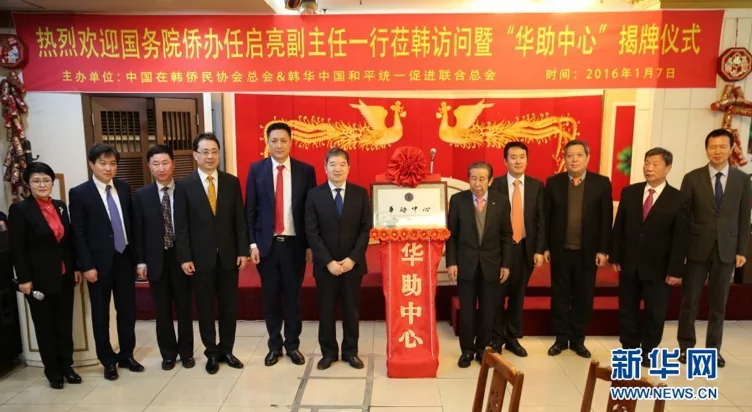
In addition to his CCPPNR, OSCS and CICEC roles, Wang is also the director of HanGang Cultural Media, and general treasurer of the Korea Xinhua News Agency (韩国新华报社, est. 2005), which Cao Mingquan (曹明权), the head of the Seoul chapter of the CCPPNR, serves as director. HanGang Cultural Media/HG Culture Media is also shares office space with PRC’s CCTV in Seoul near the National Assembly in Seoul.
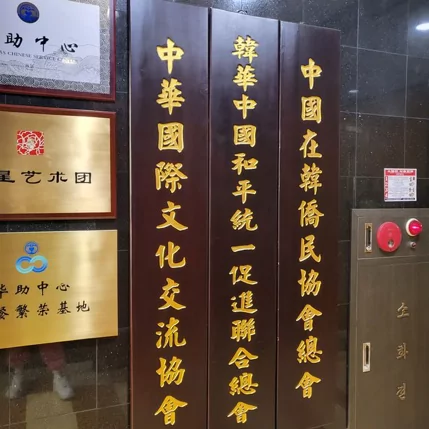
Activities of United Front Organizations
Contrary to the perception that the CCP’s United Front groups are singularly focused on Taiwan, the South Korean branches of these groups have engaged on a range of other issues. In addition to engaging in anti-THAAD protests (Baidu), anti-Japanese protests and rallies on issues concerning “comfort women” (Huanqiu, March 10, 2014), even opposing intelligence sharing between the ROK and Japan, or supporting the PRC’s positions in the South China Sea. These organizations, particularly the CCPPNR, also mobilize to support Beijing Winter Olympics games while there were mass global protests against the Chinese government’s commission of atrocities in Xinjiang (Huanqiuhuaxunwang). Overall, the CCPPNR and other United Front organizations in South Korea appear a lot more active than in many other countries, hosting multiple events, as well as apparently engaging in public protests on policy matters related to PRC’s national interests. In one example and perhaps a play off the Soviet playbook, Wang also spoke on stage in 2016 at a rally of Chinese and Korean Buddhist organizations that opposed THAAD (Xinhuanet, July 22, 2016). The event also included local Korean protestors that obstructed the deployment of the THAAD system in 2016 (CCTV, August 25, 2016).
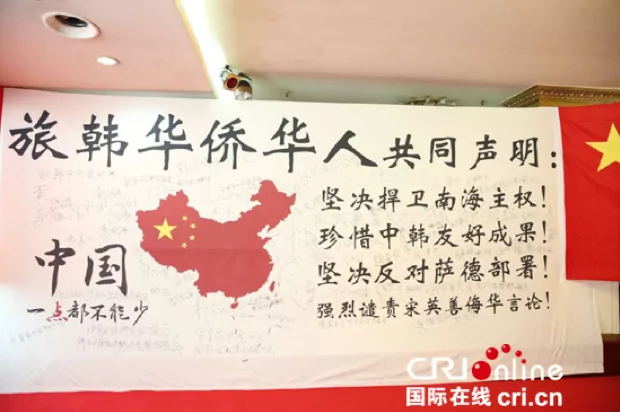
Conclusion
As the linchpin of U.S. security posture in Asia, South Korea is a vital ally and by extension, a key target of PRC influence operations seeking to weaken US alliances in the Indo-Pacific region. As Korea expert, Dr. Jung Pak notes: “Beijing perceives Seoul as the weakest link in the U.S. alliance network, given its perception of South Korea’s deference and history of accommodating China’s rise relative to other regional players, such as Japan, which considers China a long-term security threat” (Brookings, July 2020). While there are indeed “not subtle” and “blatant” aspects of PRC influence operations against South Korea, Beijing has more means to influence South Korea than is commonly understood. [5]
Clearly, these cases and organizations’ activities that these organizations’ objectives extend beyond providing services for the diaspora community or simply about Taiwan that they claim, and are highly political and with active involvement and likely receive direction from the PRC Embassy. Currently, the CCP’s United Front operations in South Korea appear are aimed at consolidating control over the diaspora and mobilizing them to support the PRC’s policy objectives. At an operational level, United Front operations are concentrated at the provincial level, particularly those originating from nearby Shandong Province. As this preliminary study shows, China’s influence over contemporary South Korea is a fuller spectrum and more centralized than many other countries.
Russell Hsiao is the executive director of the Global Taiwan Institute, senior fellow at The Jamestown Foundation and adjunct fellow at Pacific Forum.
Notes
[1] For an examination of the CCPPNR’s international activities, see John Dotson, “The United Front Work Department Goes Global: The Worldwide Expansion of the Council for the Promotion of the Peaceful Reunification of China,” China Brief, May 9, 2019; “The United Front Work Department in Action Abroad: A Profile of The Council for the Promotion of the Peaceful Reunification of China,” China Brief, February 13, 2018.
[2] Timothy Heath, “Beijing’s Influence Operations Target Chinese Diaspora,” War on the Rocks, March 1, 2018.
[3] Han Seong-ho was a former secretary of Taiwan’s (Republic of China) embassy in the ROK, and allegedly came from Taiwan’s Kuomintang intelligence agency “Zhongtong” and later defected and served as an emissary during the 1992 establishment of diplomatic ties between Korea and the PRC. (See, Weekly Chosun, December 30, 2022; In 2020, the U.S. State Department designated the Washington, D.C.-based chapter of the CCPPNR, the National Association for China’s Peaceful Unification (NACPU), as a foreign mission of the PRC under the U.S. Foreign Missions Act (State.gov, October 28, 2020) The United Front Work Department (UFWD) is the Chinese Communist Party (CCP) organ tasked with co-opting and neutralizing threats to the party’s rule and spreading its influence and propaganda overseas. The CCP regards this party apparatus as a “magic weapon” to advance Beijing’s policies. Today, the Department of State designated a UFWD-controlled organization – the – as a foreign mission of the PRC, see Anne-Marie Brady, “Magic Weapons: China’s political influence activities under Xi Jinping,” Wilson Center, September 18, 2017.
[4] The scope of this assessment prevents a full biographical sketch of Han, he reportedly turned to the PRC after Lee Teng-hui was selected as leader of the KMT.
[5] It is worth noting that this study does not examine the other vectors of PRC influence operations which include pseudo-academic institutes, Confucius institutes, business associations, student associations, elite capture through “honeypots” and other forms of propaganda, which are also present in South Korea.




